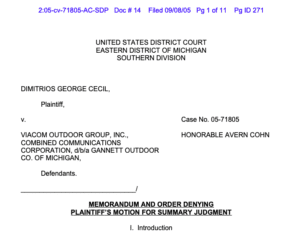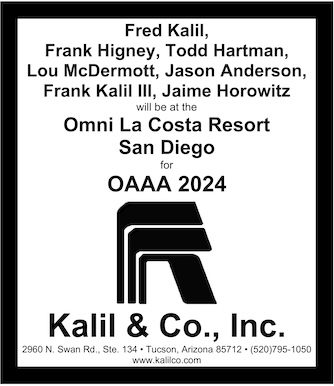 What happens when a landlord asks for a 25 times increase in the rent and then doesn’t bother to evict a billboard company tenant for 10 years? Cecil v Viacom answers that question. Here are the facts:
What happens when a landlord asks for a 25 times increase in the rent and then doesn’t bother to evict a billboard company tenant for 10 years? Cecil v Viacom answers that question. Here are the facts:
- On September 15, 1991, Viacom entered into a three year ground lease with Eilender Investment company to put a billboard on land located in Pontiac Michigan. Rent was $250/year. The lease was renewable from year to year by Viacom on expiry. The lease also stated that if the property was sold the new owner “may cancel the lease on a 30 day notice from the date of purchase.
- On August 3, 1994 Dimitrios Cecil purchased the property.
- On August 26, 1994 Cecil notified Viacom that he was increasing the rent from $250/year to $520/month and asked Viacom to forward to him a new lease on those terms.
- On January 10, 2005 Viacom responded that it was a holdover tenant at $250/year and did not accept the invoices of $520/month.
- Cecil continued invoicing Viacom for 10 years at higher rent but took no collections or removal actions. Viacom never responded or paid any money.
- On April 13, 2005 Cecil sued Viacom for $144,442 plus interest and attorney costs due to breach of contract, unjust enrichment and trespass. Cecil argued that the original lease was a license and so could be revoked at will.
- Viacom responded that property law, not contract law applied and that Cecil was only entitled to reasonable rent. Viacom also argued that Cecil had accepted an implied offer to continue the lease at the rate of $250.
- The court agreed with Viacom that its agreement was a lease and not a license and so was not cancellable at will by Cecil. The court found that Cecil had not accepted Viacom’s implied offer to continue the lease at $250/year and that Cecil was entitled to “reasonable compensation” for Viacom’s use of the property. But because there were issues of fact as to what is reasonable compensation the court denied Cecil’s claims for damages. The court encouraged the parties “to settle the case, either themselves or with the services of a mediator”.
Insider’s take: Both sides got something here. The court affirmed that the lease was a lease and not a license. Viacom was on the hook for reasonable compensation but Cecil was limited to reasonable compensation and could only go back 6 years because of the statute of limitations. The real story began after the court issued its ruling. Insider wonders what sort of an agreement the parties reached.
[wpforms id=”9787″]
Paid Advertisement


















There is an old (1936) case in California that is still good law here: Colyear v. Tobriner (1936) 7 Cal. 2d 735, 743 [62 P.2d 741, 109 A.L.R. 191].
Similar facts (month-to-month holdover instead of year-to-year). Tenant rejected a large increase in rent. Same outcome: When tenant rejected the increase, there was no lease. Lessor entitled only to the reasonable rental value during the holdover.
Thanks for calling our attention to this case Richard. We’ll write it up in the future.